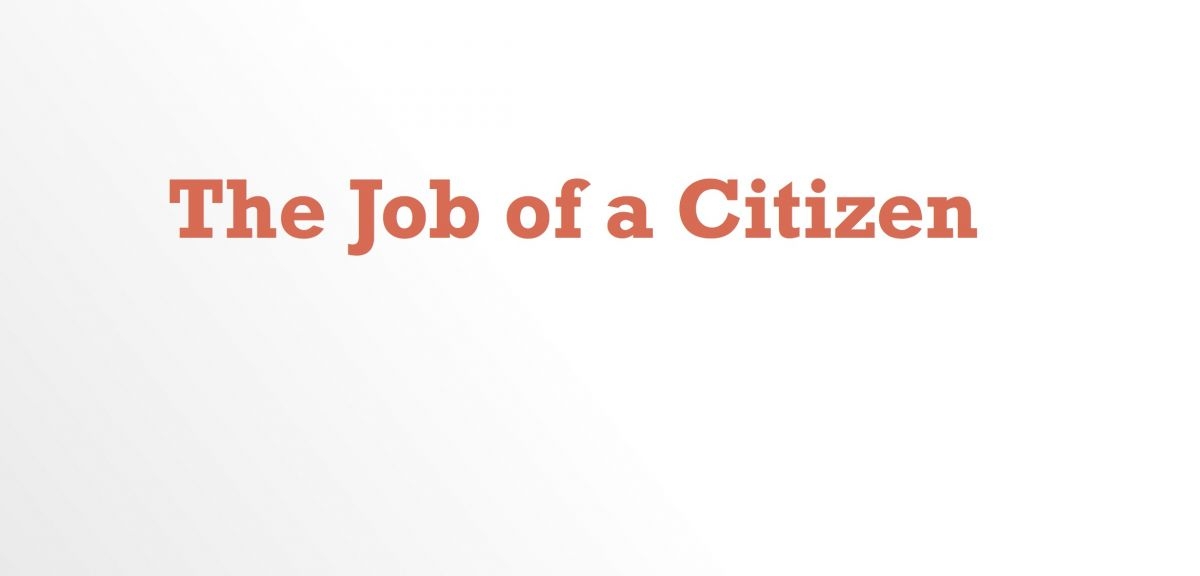
The Job of a Citizen
There are no experts on questions of judgement. Matters of judgement are civic challenges that cannot be unilaterally resolved in millimetres or economic units. They are matters for deliberation, public discourse and wisdom.
Such issues must therefore be processed by citizens, not by scientists.
We do well to remember this and to continue to stoke the embers of belief that remind people that they can make a difference, and that together they can be central to implementing many of their own solutions.
A big part of inflating that space is taking care to deflate the egos of technocrats (as distinct from civic professionals who work in true service of the public) who say ‘leave it to us, we know best, we are the experts. Trust our judgement’. If we allow such experts to occupy matters of the commons, matters of public judgements (community business), we allow the ground on which we build civic power, care and connection to be eroded; and we, in turn, passively preside over the demise of democracy.
When it comes to wisdom, safety, justice and wellbeing we have gotten it back to front. Schools now have a monopoly on education, courts have a monopoly on justice, hospitals a monopoly on health. But in a deep democracy we are the prime producers of wisdom, justice and health, and systems are their to serve us, not us them. We have gotten it back to front -truly, we have- and we need to effect a reversal of fortune.
We need to occupy democracy. We need to come back to our senses, to each other, and to the locus of real power, the power to define the challenges; produce our own solutions and take action.
The experts can contribute, and often they must, but we must never let them lead, for that is the job of a citizen. We are the great inventors of a better tomorrow and if we don’t our job, then it will not get done. It’s time for citizens to step up and into their collective efficacy, and experts to step back in humble service.
Cormac Russell.
